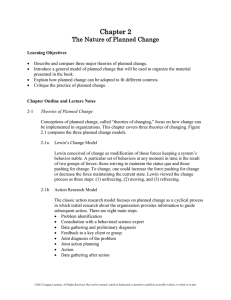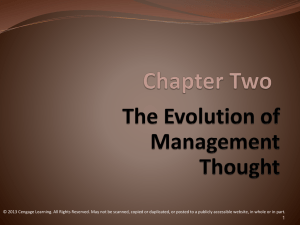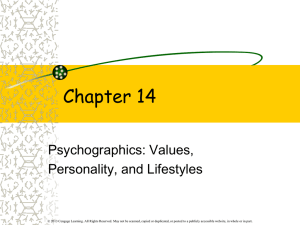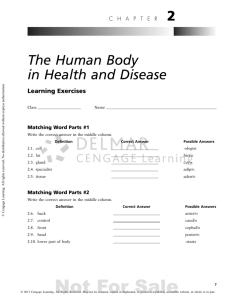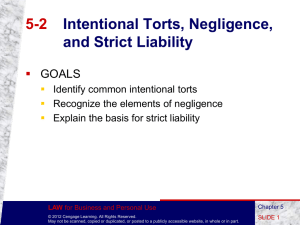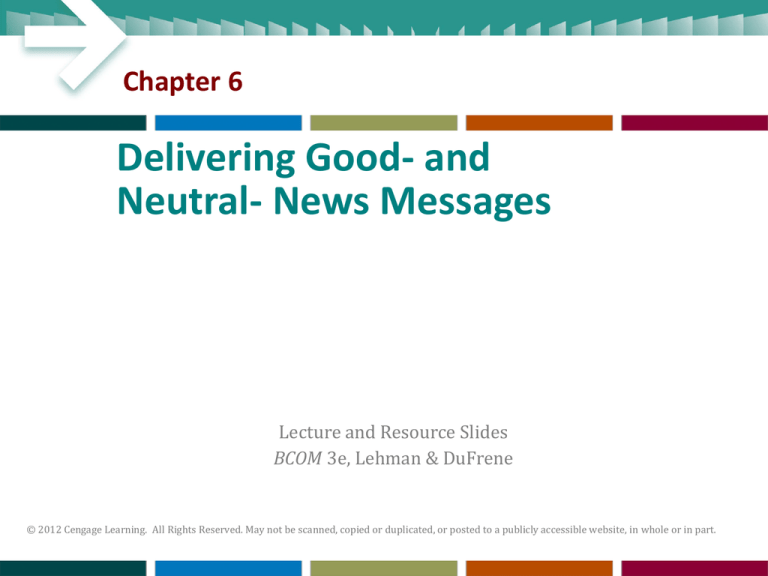
Chapter 6
Delivering Good- and
Neutral- News Messages
Lecture and Resource Slides
BCOM 3e, Lehman & DuFrene
© 2012 Cengage Learning. All Rights Reserved. May not be scanned, copied or duplicated, or posted to a publicly accessible website, in whole or in part.
Learning Objectives
1. Describe the deductive outline for good news and
routine information, and its adaptations for specific
situations and for international audiences.
2. Prepare messages that convey good news, including
thank-you and appreciation messages.
3. Write messages presenting claims and requests and
favorable responses to them.
4. Write message acknowledging customer orders,
providing credit information, and extending credit.
5. Prepare procedural messages that ensure clear and
consistent application.
Learning Objective 1
Describe the deductive outline
for good news and routine
information, and its adaptations
for specific situations and for
international audiences.
Direct Outline Used in Goodand Neutral-News Messages
© 2012 Cengage Learning. All Rights Reserved. May not be scanned, copied or duplicated, or posted to a publicly accessible website, in whole or in part.
Advantages of the Deductive Outline
• Begins with an easy-to-write
___________ sentence
• Gets attention
________ by responding to the
audience’s ______
desire to know
• Puts reader in a good frame of mind in
receptive
order to be ________
to details
• Allows easy __________
movement through the
details after the main idea is
presented
© 2012 Cengage Learning. All Rights Reserved. May not be scanned, copied or duplicated, or posted to a publicly accessible website, in whole or in part.
Learning Objective 2
Prepare messages that convey
good news, including thank-you
and appreciation messages.
Types of Good-News Messages
Positive news
messages
Thank you and
appreciation
messages
Apologies
Routine claims
Routine
requests
Order
acknowledgments
Credit
information
messages
Messages
extending
credit
© 2012 Cengage Learning. All Rights Reserved. May not be scanned, copied or duplicated, or posted to a publicly accessible website, in whole or in part.
Positive News Message:
Why It Works
A casual dress policy has been approved for First National Bank and
will be effective July 1. As most of us agree, casual attire in the
banking industry generally means “dressy casual,” since virtually all
of us interact with our clientele regularly throughout the day.
To maintain our traditional professional image while enjoying more
relaxed attire, please follow these guidelines:
Men
Women
Sport or polo shirt, with collars
Pant suit
Khakis or corduroys
Sweater or blouse with
Loafers with socks
pants or skirt
Loafers with socks
Low heels with hosiery
Tennis shoes, open-toed shoes, sandals, jogging suits, shorts, jeans,
sweatpants, and sweatshirts are inappropriate. Formal business
attire should be worn when meeting with clients outside the office.
Please visit the HR website for the complete casual attire policy and
illustrations of appropriate casual attire. If you have questions as
you begin changing in your wardrobe, please call me at ext. 59.
• Announces
approval of policy
• Restates
appreciation by
assuring reader
of benefits gained
• Explains policy
clearly, including
table formatted
for quick, easy
access to details
• Encourages open
discussion
© 2012 Cengage Learning. All Rights Reserved. May not be scanned, copied or duplicated, or posted to a publicly accessible website, in whole or in part.
Benefits of Written
Appreciation Messages
• Provides sincere thoughts because
few people take time to write
• Provides tangible evidence that
can be used to support a
performance evaluation
• May be treasured over the years
© 2012 Cengage Learning. All Rights Reserved. May not be scanned, copied or duplicated, or posted to a publicly accessible website, in whole or in part.
Making the Most of
Appreciation Messages
• Say “thank you” in a timely manner
• Avoid exaggerated language that is
not believable
• Make specific comments for what you
are thankful
© 2012 Cengage Learning. All Rights Reserved. May not be scanned, copied or duplicated, or posted to a publicly accessible website, in whole or in part.
Using Written Appreciation
Messages Appropriately
• Write briefly beginning with main idea
• Convey a genuine tone by
• Send promptly — within 2 or 3 days
• Consider sending copy to reader’s
employer or writing employer with copy
sent to employee
© 2012 Cengage Learning. All Rights Reserved. May not be scanned, copied or duplicated, or posted to a publicly accessible website, in whole or in part.
Appreciation Message:
Why It Works
Appreciation for Outstanding Work
Ren,
Completing the ropes course at Camp Horizon was a
memorable and life-changing experience for every
member of our office staff.
Your facilitators were masterful in allowing our teams to
take risks while ensuring their safety. The course
provided a diverse series of activities that enabled each
staff member to participate, regardless of our physical
limitations. Identifying the real leaders in our office was
quite interesting.
• Extends appreciation
• Gives evidence of
activity’s worth
without
exaggeration or
mechanical language
• Restates
appreciation by
assuring reader of
benefits gained
In the words of one colleague, “The ropes course has
shown me I can do more than I have come to expect of
myself.” Thank you for helping us see our potential.
© 2012 Cengage Learning. All Rights Reserved. May not be scanned, copied or duplicated, or posted to a publicly accessible website, in whole or in part.
Handling Apologies
once
• State the apology _____
brief
• Be _____
• Use _______
general statements that don’t
reinforce
________the
error
action
• Include ______you
will take to prevent
recurring
error from _________
© 2012 Cengage Learning. All Rights Reserved. May not be scanned, copied or duplicated, or posted to a publicly accessible website, in whole or in part.
Apology Message: Why It Works
Mike,
Please accept my apology for missing yesterday’s
meeting of the Planning Committee. Had the plane
from Denver arrived on schedule, I could have
attended.
The report on tax considerations for the proposed
site of the Windermere Apartments is ready. Let
me know if you plan to include it on next week’s
agenda.
• Begins with
apology
• Gives a reason for
the error without
offering excuses
• Offers something
tangible to make
up for error
Thanks,
Jerry
© 2012 Cengage Learning. All Rights Reserved. May not be scanned, copied or duplicated, or posted to a publicly accessible website, in whole or in part.
Distinguishing Between
Resale and Sales Promotion
Resale — Discussion of goods and services already purchased
Example: Remember that your 20- ounce stadium cups are
dishwasher and microwave safe.
Sales promotion — Statements made about related
merchandise or services
Example: When your stadium cups order arrives, look for our
new catalog so you can create a custom design for your baseball
season.
© 2012 Cengage Learning. All Rights Reserved. May not be scanned, copied or duplicated, or posted to a publicly accessible website, in whole or in part.
Learning Objective 3
Write messages presenting
claims and requests and
favorable responses to them.
Routine Claim:
What Does Not Work
Yesterday evening I stopped by the construction site of the
apartments you are under contract to build. You appear to be
well ahead of schedule.
According to our agreement, all requests and complaints are to
be made in writing. I noticed that water heaters had been
installed in two of the apartments. The units are 30-gallon
heaters, but the specs call for 50-gallon heaters in each of the
12 apartments.
For some families, the smaller size may be sufficient; but others
may need the larger size. Because the larger size is specified in
the agreement we signed, I respectfully request that the two
30-gallon units be removed and that 50-gallon water heaters be
installed in all the apartments.
•
Uses inductive
outline and treats
routine claim as a
bad-news message;
buries the routine
request in the 3rd
paragraph
•
Too much
explanation; issue is
what contract says
•
Includes cliché
Thank you for your consideration in this matter.
© 2012 Cengage Learning. All Rights Reserved. May not be scanned, copied or duplicated, or posted to a publicly accessible website, in whole or in part.
Routine Claim: Why It Works
Dear Mr. Jackson:
Please replace the two 30-gallon heaters (installed last
week) with 50-gallon units.
•
Begins with claim
requests
•
Is specific about
what is needed;
provides needed
explanation
•
Closes positively
Large units are essential for families with children. For
that reason, the contract specifies a 50-gallon heater for
each of the 12 apartments.
The project appears to be well ahead of schedule. Thanks
for your efforts.
Sincerely,
Peter Allen
© 2012 Cengage Learning. All Rights Reserved. May not be scanned, copied or duplicated, or posted to a publicly accessible website, in whole or in part.
Learning Objective 4
Write message acknowledging
customer orders, providing
credit information, and
extending credit.
Requirements of the
Equal Credit Opportunity Act
• Notify credit applicant of credit decision
within 30 days of request
• Disclose terms of credit agreement
• Disclose reasons for refusal if credit is denied
• Provide name and contact information of the
consumer reporting agency if their
information influenced the credit decision
© 2012 Cengage Learning. All Rights Reserved. May not be scanned, copied or duplicated, or posted to a publicly accessible website, in whole or in part.
Extending Credit: Write Deductively
• Open with credit
_____ extension and
________
shipment information
• Indicate basis for credit extension
and explain terms
_____
policies
• Outline credit _______
• Communicate genuine desire to build
________
business __________
relationship
© 2012 Cengage Learning. All Rights Reserved. May not be scanned, copied or duplicated, or posted to a publicly accessible website, in whole or in part.
Learning Objective 5
Prepare procedural messages
that ensure clear and consistent
application.
Guidelines for Procedural Messages
• Begin each numbered step with action
statement
• Place each step on a separate line for
easy reading
• Consider preparing flow chart
• Follow your own instructions
• Ask someone else to follow instructions
© 2012 Cengage Learning. All Rights Reserved. May not be scanned, copied or duplicated, or posted to a publicly accessible website, in whole or in part.
Procedural Message: Why It Works
Procedures for Requesting Computer Service
1.
2.
3.
4.
5.
Access http://www.drmc.com/it/index.html, and click the
Service option.
Provide the information requested. Be certain to
complete the required items denoted with asterisks.
Check your email for a service order confirmation,
typically within 24 hours.
Complete normal shut-down procedures when leaving
your computer station. Although the service work will be
performed after hours, technicians will start your
computer using their personal login procedures.
Check your email for a service completion notice, and
message us if the work was not completed to your
satisfaction.
• Provides
descriptive title
that clearly
identifies
procedures
• Enumerates to
direct attention to
each sequential
step
• Begins each item
with an action verb
for clarity
• Includes date of
last revision for
currency
Revised 6/20/2012
© 2012 Cengage Learning. All Rights Reserved. May not be scanned, copied or duplicated, or posted to a publicly accessible website, in whole or in part.
Procedural Message:
What Does Not Work
TO:
All Employees
FROM: Joe Brown, HRM Director
DATE: March 7, 2012
RE:
Earthquake Preparedness
Because earthquake tremors have been jarring Evansville and
we are located in a high-rise building, we need to be sure that
we are prepared for an earthquake. Therefore, the following
actions should be taken in the event of an earthquake:
1. Elevators should not be used.
2. Fire alarms or sprinkler systems may activate and startle
people.
3. Earthquakes do not kill; buildings do.
4. If outside, open areas are safer than areas near wires, signs,
buildings, or trees.
5. People in offices should drop to the floor, take cover under
desks, and ride out the tremor.
6. If no desks or tables are near, people should seek cover
against an interior wall.
•
Uses passive voice;
should be receivedcentered
•
Uses numbered list
for tasks not
occurring in specific
order
•
Uses unparallel
items in list
•
Uses dangling
modifier
© 2012 Cengage Learning. All Rights Reserved. May not be scanned, copied or duplicated, or posted to a publicly accessible website, in whole or in part.
Procedural Message:
Why It Works
TO:
All Employees
FROM: Joe Brown, HRM Director
DATE: March 7, 2012
RE:
What Do In Case of Earthquake
As many of you are aware, earthquakes have been occurring more
frequently in Evansville. Because our offices are located in a high-rise
building, we need to be as prepared as possible in the event of an
earthquake. Please use the following guidelines when necessary:
• Take cover under desks or drop to the floor.
• Seek cover against an interior wall.
• Avoid windows, glass doors, tall furniture, and hanging objects.
• Use the stairs. Elevators should not be used.
• Avoid areas near wires, signs, buildings, or trees if outside.
An earthquake drill will be held early next week to make sure everyone
knows what to do in case an earthquake should occur. If you have any
questions about these procedures, please call me at ext. 303.
•
Begins with
explanation of
why information
is being provided
•
Provides specific,
bulleted list of
possible actions
•
Uses parallelism
to construct
bulleted list; uses
active verbs
© 2012 Cengage Learning. All Rights Reserved. May not be scanned, copied or duplicated, or posted to a publicly accessible website, in whole or in part.



